Benefits and risks of eating raw bean sprouts
Nutritionist Le Thao Nguyen (South Saigon International General Hospital) said that bean sprouts are a familiar food, often used in stir-fries, soups or eaten raw with vermicelli and pho. Bean sprouts are a food with many health benefits, helping to support digestion, regulate blood pressure and supplement antioxidants.
Bean sprouts contain high levels of fiber, which makes you feel full for a long time and thus helps reduce the overall amount of calories you take in. In addition, bean sprouts also contain many nutrients that are good for the heart such as antioxidants, potassium and calcium, which help regulate blood pressure and improve heart health. Bean sprouts help strengthen the body's resistance thanks to their rich vitamin and mineral content.
"Depending on your physical condition and health status, each person can choose to eat raw or cooked bean sprouts. However, the problem lies in the origin of the food and the risk of bacterial contamination if not prepared properly," said Dr. Thao Nguyen.
In fact, eating raw bean sprouts helps retain the maximum amount of vitamins and minerals - especially vitamin C and plant enzymes. However, the environment in which bean sprouts are grown is often hot and humid, creating ideal conditions for bacteria such as Salmonella and E.coli to grow.
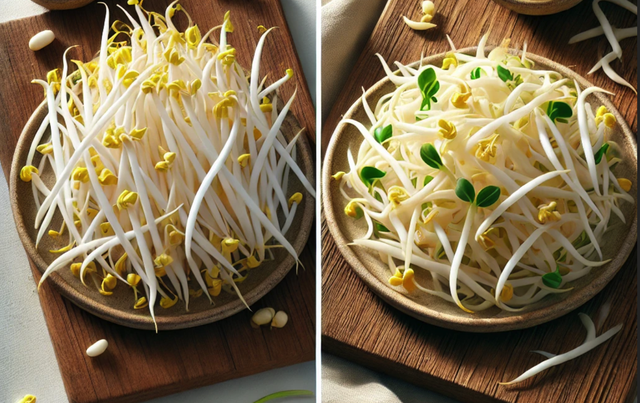
Eating raw or cooked bean sprouts both have their own advantages and disadvantages.
ILLUSTRATION: AI
If infected bean sprouts are eaten, patients may experience symptoms such as nausea, fever, abdominal cramps, diarrhea, and even bloody stools. More worryingly, many bean sprout growing facilities use growth stimulants to shorten the harvest time, causing the bean sprouts to grow faster. But at the same time, there is a potential risk of chemical residues, affecting the health of consumers.
"People with weak immune systems such as the elderly, pregnant women, people with digestive diseases... should not eat raw bean sprouts. This group is at high risk of food poisoning or digestive disorders when eating uncooked food. Although bean sprouts are familiar and benign, if food hygiene and safety procedures are not ensured, they can still become a source of microbial contamination or chemical residues that are harmful to health," Dr. Thao Nguyen warned.
Eating cooked bean sprouts: Safe solution but need to be done correctly
Blanching bean sprouts in boiling water or cooking them with food helps kill most of the harmful bacteria, supporting better digestion - especially for people with sensitive intestines. However, high temperatures can also destroy some vitamins such as vitamin C, so cook quickly and avoid cooking for a long time at high temperatures.
Do not eat raw bean sprouts if you are unsure of their origin or have digestive problems. The elderly, children, pregnant women, people with weak immune systems, etc. should prioritize blanching or cooking bean sprouts. Bean sprouts should be combined with dishes such as beef, mussel soup, stir-fried vegetables, etc. to enhance the flavor and ensure hygiene. Bean sprouts should not be cooked for too long because it can lose nutrients. Quickly blanching or stir-frying over high heat for a short time is the best way.
"It is best to cook them just right. This will keep them crispy and ensure food hygiene. If you have to eat them raw, choose bean sprouts with a clear origin, wash them thoroughly and soak them many times in clean water. There is no need to soak them in salt water because it does not kill disease-causing bacteria as many people mistakenly believe," Dr. Le Thao Nguyen recommends.
Source: https://thanhnien.vn/gia-song-gia-chin-an-loai-nao-tot-hon-185250413103846959.htm



![[Photo] Prime Minister Pham Minh Chinh chairs a meeting of the Steering Committee for key projects in the transport sector.](https://vphoto.vietnam.vn/thumb/1200x675/vietnam/resource/IMAGE/2025/5/10/0f4a774f29ce4699b015316413a1d09e)



![[Photo] General Secretary To Lam holds a brief meeting with Russian President Vladimir Putin](https://vphoto.vietnam.vn/thumb/1200x675/vietnam/resource/IMAGE/2025/5/10/bfaa3ffbc920467893367c80b68984c6)


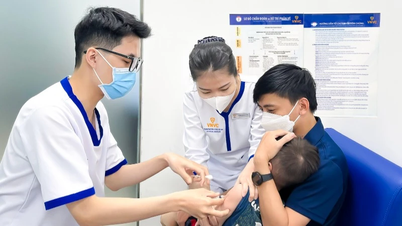


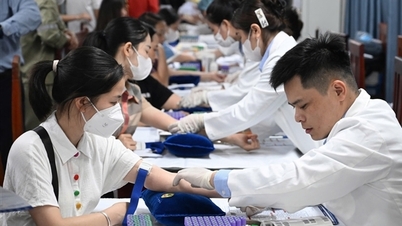
























































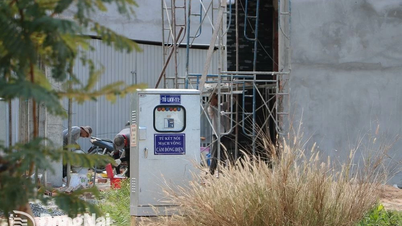

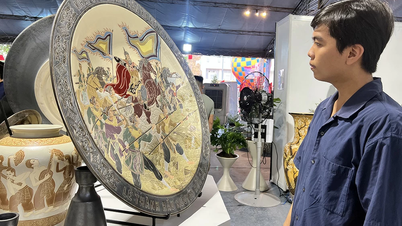














Comment (0)